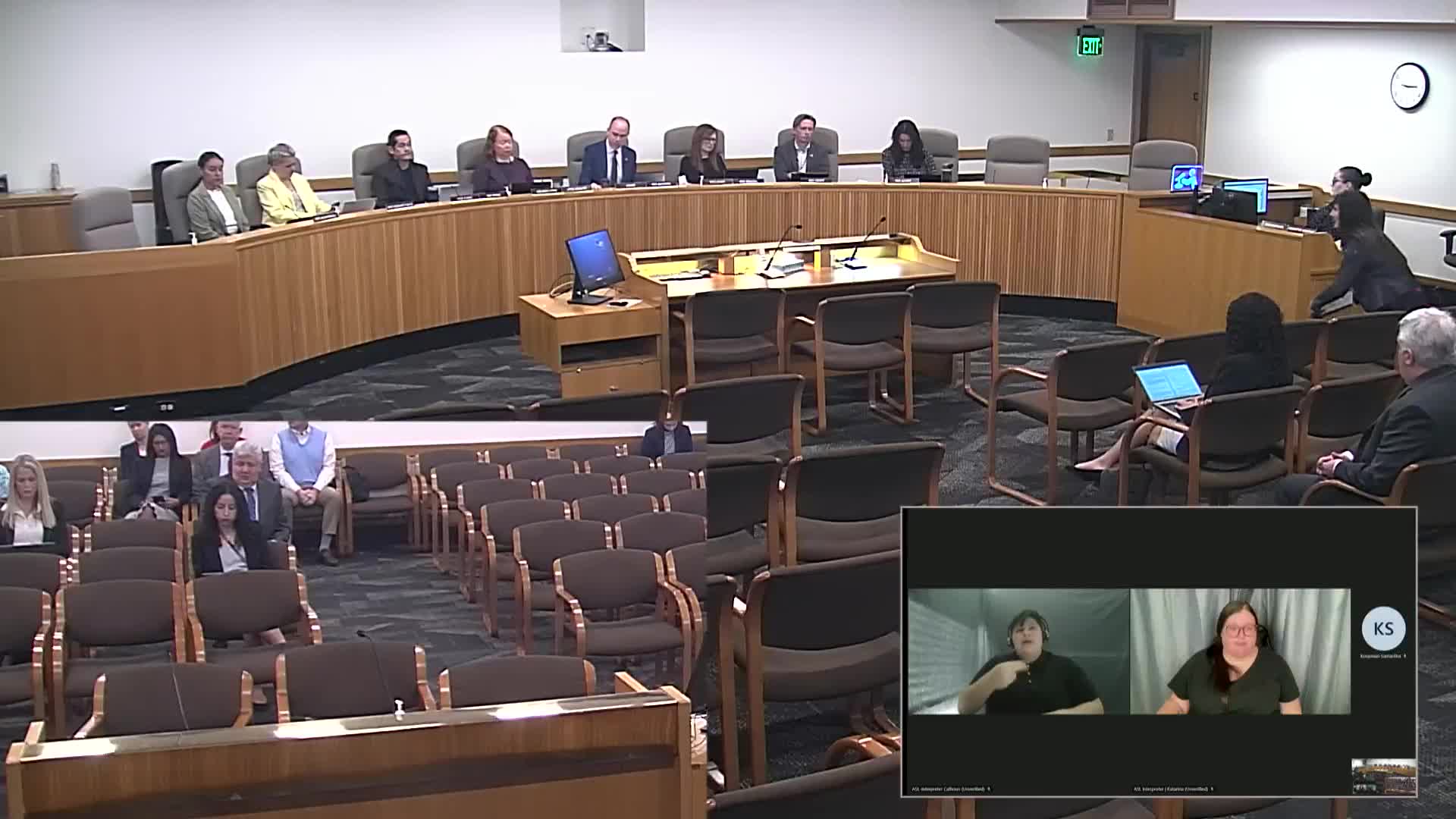Committee hears bill to define work sessions and require public comment before votes taken in those sessions
Get AI-powered insights, summaries, and transcripts
Subscribe
Summary
House Bill 3887 would define "work session," require a public comment period for meetings that include votes, and prohibit voting on matters without a public-comment period. Supporters said it discourages voting in informal settings; cities and school boards opposed the bill as drafted, citing operational and emergency concerns.
The House Committee on Rules held a public hearing on House Bill 3887 on April 14. The bill defines a "work session," requires public comment of reasonable duration for meetings that include votes, and prohibits a governing body from voting on any matter unless the required public notice includes a public comment period.
Representative Kim Wallin, sponsor of HB 3887, told the committee she drafted the bill after consulting with the Oregon Government Ethics Commission about definitions of "work session." Wallin said the bill’s intent is to preserve public comment when bodies conduct business labeled as "work sessions" and to discourage bodies from taking votes at meetings that are functionally public but called "work" or "study" sessions.
Witnesses representing cities, special districts and school boards opposed the bill as written. Scott Winkles of the League of Oregon Cities said the phrase "voting on any matter" could be read broadly to require separate public comment periods for routine procedural votes (for example, approval of minutes), and he raised concerns about the bill’s effect on emergency actions the city might need to take quickly. Mark Landauer of the Special Districts Association of Oregon said the bill appears to impose the legislature’s meeting model on local meetings, which function differently in practice. Adrienne Anderson of the Oregon School Boards Association echoed concerns about timing and scope, highlighting examples in which boards must act quickly to place an employee on administrative leave and asking that the bill be narrowed to main board meetings rather than all subcommittees or advisory panels.
Representative Wallin said she intended the bill to discourage the practice of taking votes at unadvertised or informal meetings and was open to amendments on scope; she confirmed the bill does not change the exclusion for executive sessions.
Why it matters: supporters framed HB 3887 as a measure to protect public notice and comment when governing bodies vote; municipal and special-district representatives said the draft language is too broad and could hamper necessary emergency actions or unintentionally apply to small advisory meetings.
No committee vote or recommendation was recorded during the hearing.
